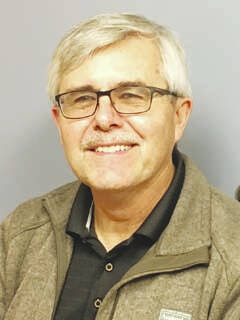This is part two of a series about Larry, who was 40 years old when he enrolled in hospice services with end-stage cirrhosis of the liver. In part one, “The House of the Rising Sun”, Larry shared, “I started drinking when I was 14. I was a shy person, but when I drank, I came out of it. It was ‘liquid courage.’” Larry’s mother, Debbie stated,” Larry was a follower. He wanted to fit in, to be accepted.” Larry declared, “I just want to tell others not to go down the same road I went down. Be your own person; but make wise decisions. Don’t try to be somebody you’re not just to fit in. “
Larry and I talked about the physical changes associated with illness, as well as aging, and how people who meet us for the first time have no idea what we used to be and do. I explained that I’m continually explaining to people, when I tell them what I used to do, that “I didn’t always look like this.” Debbie showed me pictures of Larry when he was healthy. Larry stated that he enjoyed installing siding and added, “I was pretty good at it. I liked seeing the difference when it was finished. And I used to like to read. I didn’t like science fiction; I liked biographies and history. And I used to have a good memory. I could read a book and tell you everything in it a year later, but now my memory is shot.”
Debbie testified “Larry was always tenderhearted. He watched after his sisters. He was like a father figure to them. And he was always respectful of me and his daughter in everything he did. He was my rock.” I shared a lesson that my daughter, Jessie, taught me several years ago. In response to the death of her close friend who had a drug problem, Jessie exclaimed, “Dad, someone needs to tell people that just because someone has a drug problem it doesn’t mean that they’re a worthless person.” I suggested to Larry that “There is only One good” and that is God; that the rest of us are in need of mercy and grace, in need of a Redeemer. Larry replied, “I really like what you just said.” I explained, “I didn’t say it; Jesus did,” (Matthew 19:16-17).
I respect Larry for not blaming others or feeling sorry for himself. Larry admitted, “This is what I did to myself. I don’t blame anybody. And I don’t want anybody feeling sorry for me. What I’m sorry for is what I did to the people who love me.” I explained to Larry that the Bible differentiates between “godly sorrow” and the “sorrow of the world”. The “sorrow of the world” says “I’m sorry I got caught. How can I get myself out of this mess?” But “godly sorrow” says “I’m sorry for what I’ve done that’s hurt, grieved or disappointed God and others”. Godly sorrow “produces repentance leading to salvation,” (2 Corinthians 7:10). Larry and I talked about how when we seek to escape responsibility, we escape freedom and slam the door to deliverance.
Larry shared that it was when he went to church with his grandmother and went to the alter and confessed his sins, that he experienced deliverance. Debbie recounted, “He never was one to believe in the Holy Spirit, but when he got home, he said, ‘Mom, you missed it, I got the Holy Spirit’”.
“The sacrifices of God are a broken spirit, a broken and contrite heart,” (Psalm 51:17).
“The Lord is near to those who have a broken heart and saves such as have a contrite spirit,” (Psalm 34:18).
Loren Hardin was a social worker with SOMC Hospice for 29 years. He can be contacted at 740-357-6091 or at lorenhardin53@gmail.com. You can order Loren’s book, “Straight Paths: Insights for living from those who have finished the course”, at Amazon.





